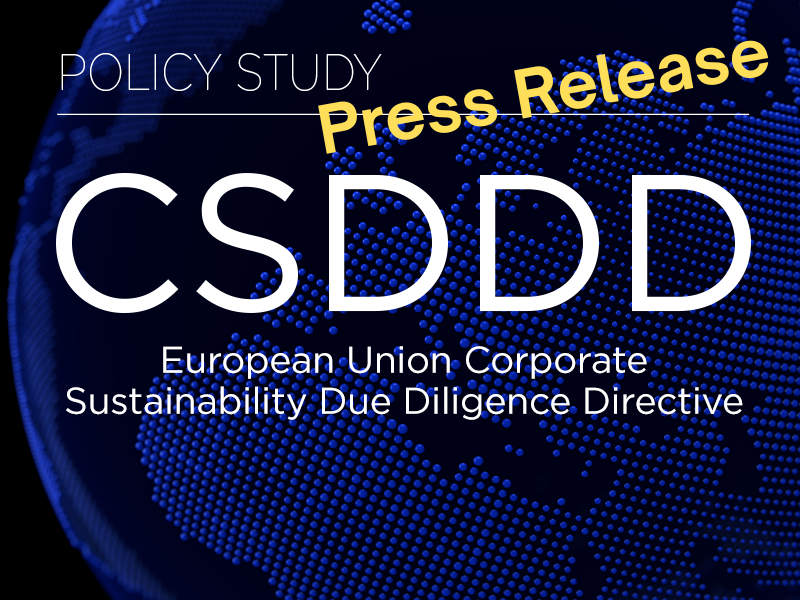On September 4, the one-millionth online search occurred at the Missouri Accountability Portal, or MAP, a Web site created just a few weeks earlier on order of Gov. Matt Blunt (R). The MAP allows online visitors to search state budget information both by broad categories and by specific businesses and individuals.
Missouri plans to improve the Web site and is set to include additional information such as state employee salaries by January.
Blunt issued an executive order in July to create the Web portal–using existing revenues–thus heeding a call for greater transparency that has been resonating across the country ever since passage of the Federal Funding Accountability and Transparency Act of 2006. That act creates a free, publicly searchable Web site for nearly all federal contracts and grants.
“The initial response to the Missouri Accountability Portal has been outstanding,” Blunt said. “Missourians deserve to know where their money goes and how state government is spending their tax dollars. That is why my administration has been committed to making your state government more efficient and accountable.”
Five States Pass Transparency
Five states–Hawaii, Kansas, Minnesota, Oklahoma, and Texas–passed legislation this year mandating the creation of searchable Web sites offering comprehensive information on government expenditures. Taxpayers in those states, to varying degrees, will be able to track government spending.
While most state legislatures were out of session at press time, Michigan lawmakers were in session and House Republicans there have been pushing for a comprehensive fiscal transparency package.
The legislation would encompass direct state government expenditures and also spending at universities, community colleges, public K-12 school districts, and academies.
Michigan finds itself in a single-state economic recession, and several tax increase proposals are being floated. One of the proponents of the transparency package, state Rep. Jack Hoogendyk (R-Kalamazoo) said rather than raising taxes, lawmakers should “be more careful about how they spend taxpayer money.”
Taxpayers Deserve to Know
Hoogendyk said knowing they would have to account for every expenditure will make government bureaucrats think twice before, for example, approving change orders to an existing contract that vastly expands its costs.
“In tight budgetary times, working families and small businesses know where every dollar is spent,” Hoogendyk said in an August 1 news release issued by the Michigan House Republicans. “They deserve to know where every one of their tax dollars is going as well.”
NCSL Devotes Session
The issue of fiscal transparency has garnered so much attention that the National Conference of State Legislatures (NCSL) dedicated a separate panel discussion to state efforts in this area at the organization’s annual conference in August in Boston.
Kansas State Rep. Kasha Kelley (R-Arkansas City), who sponsored the transparency legislation that passed in Kansas this year, was one of the panelists. She too believes transparency can positively transform how government operates.
“Transparency in spending will mean greater accountability for the appropriations of the public’s purse,” Kelley said. “And when the public demands greater accountability for their tax dollars, we will see a more responsible and thoughtful approach to the appropriations process and the decisions made therein. In the long run, real budget transparency and public oversight will help curb wasteful, unnecessary, and abusive spending, thus saving taxpayers money.”
ALEC Drafts Model Bill
The American Legislative Exchange Council (ALEC) also took on the issue and now has official model language available.
“The Jeffersonian principle of limited government is integral to our mission at ALEC,” said Jonathan Williams, director of the Tax and Fiscal Policy Task Force at ALEC. “Our new budget transparency model language will give lawmakers a great tool to protect taxpayers by keeping spending in check.”
Momentum Builds
Grover Norquist, president of Americans for Tax Reform, thinks the issue will continue to dominate state agendas in the coming months.
“We will see more transparency efforts in the coming months,” Norquist said. “The naysayers who have been clamoring that this cannot be done because it costs too much have already been proven wrong by Governor Blunt.
“With this obstacle removed and with most of the information that is being put on the Web already being public information anyway–just not presented in user-friendly ways–there is no reason this could or should not be done in other states,” Norquist continued.
Norquist added, “Taxpayers will be best served when fiscal transparency encompasses all levels of government.”
As momentum continues to build behind this movement, taxpayers may soon have the tools they need to act as watchdogs over their tax dollars. Noting the appeal of the Missouri Accountability Portal, Norquist said, “Once we have achieved fiscal transparency at the state level, the pressure on localities will be too big to resist this movement. And as we can see in Missouri, taxpayers embrace and appreciate transparency in government finance.”
Sandra Fabry ([email protected]) is state government affairs manager at Americans for Tax Reform in Washington, DC.


